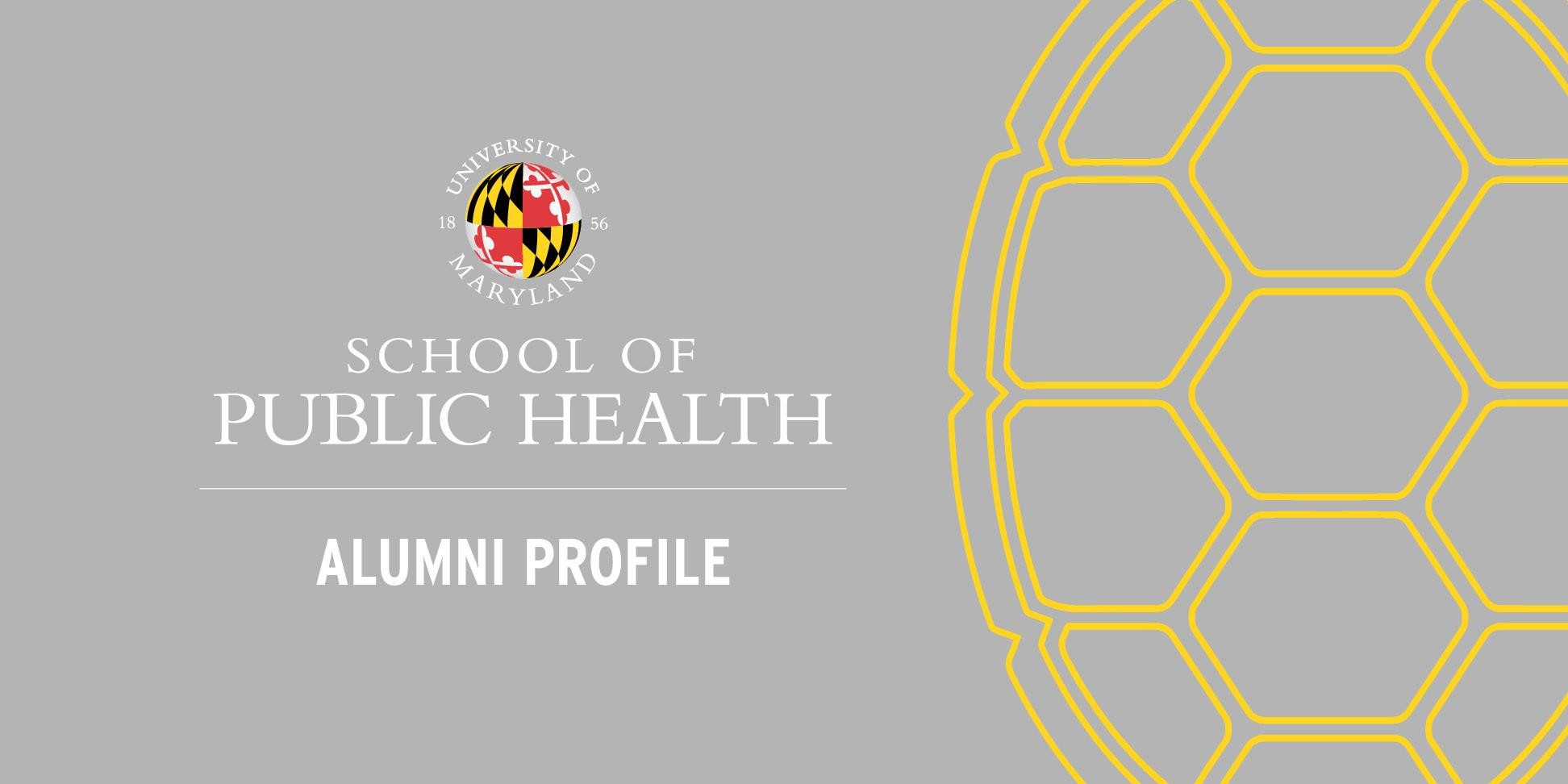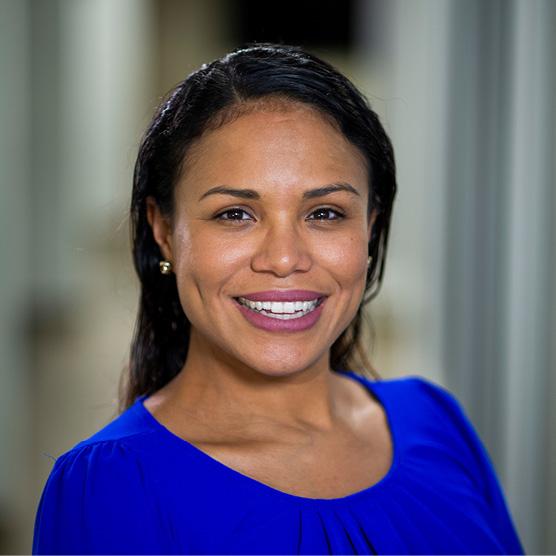

Rianna Murray
After successfully defending her dissertation in December 2018, Rianna Murray began working at the Maryland Institute for Applied Environmental Health (MIAEH) with Dr. Amy Sapkota as a Postdoctoral Associate in February 2019. Murray’s primary role in this position was Program Manager of the UMD Global STEWARDS (STEM Training at the Nexus of Energy, WAter Reuse and FooD Systems) graduate training fellowship, funded by the National Science Foundation Research Traineeship (NRT) program, which prepares future leaders focused on innovations at the nexus of food, energy and water (FEW) systems.
Murray is an assistant research professor with MIAEH. She remains the Program Manager of the UMD Global STEWARDS, while also working on a research project with several local nonprofit agencies on private well water quality on the Lower Eastern Shore, mentoring students and teaching an undergraduate class for the University of Maryland Public Health Science program.
What inspired you to study public health, and particularly, at UMD?
Prior to deciding to pursue graduate school, I worked as a quality and environmental systems officer at a food and beverage manufacturing company, so I was intimately involved with quality and environmental regulations surrounding manufacturing. And then I also worked with the occupational health and safety team of the company to ensure employee safety. I knew I always wanted to go back to grad school, so when I made the decision to finally do it, I was drawing on all those experiences and started researching different fields of study that would kind of allow me to combine all those aspects of my job into like one degree or one field, and then during my research, I came across the MPH in Environmental Health at the University of Maryland.
The program just seemed really unique and interesting to me. UMD, being ranked the way it was at the time, and then also the close proximity to Washington, DC and jobs in the area...it just seemed like a really metropolitan area. I came to visit the campus, and I really just love the layout and the huge campus feel. I really felt like it was a community that I could get into. Then, I met the staff, and mI was able to meet some professors. Everybody was just so nice and welcoming. They invited me to come to seminar and gave me lunch. I felt like UMD was the place for me. I was also impressed by the fact that I could potentially get a graduate assistantship to be able to help fund my degree.
What person or experience had the greatest impact on you during your degree program?
I had two advisors in my PhD program, Dr. Amy Sapkota and Dr. Sacoby Wilson. I would say they had the greatest impact on me as my advisors and mentors. I started the MPH with Dr. Wilson, which was something that you couldn’t decide. You would apply and then get placed with an advisor at the MPH level. It’s a bit different at the PhD level. At that level, you sort of engage with the professor before you make a decision on who you want to work with.
So, I was placed with Dr. Wilson, and he really helped to shape my experience in grad school. I was really interested in the work that he was doing around environmental justice. I was able to carve out my own project for my MPH thesis on something on an aspect of his research that I was really interested in, so naturally, when I went into the PhD program, I continued working with him as my advisor.
During that time, I was very interested in water quality and then I ended up with Dr. Sapkota, who was on my dissertation committee. I started to gravitate toward some of the research she was doing around private well water quality in Maryland. That ended up being my dissertation topic, but I was able to combine both of their research areas and interests into a dissertation at the end.
In terms of a single experience that had the greatest impact on me in my program would have been being able to travel with Public Health at Our Borders, which is now Public Health Without Borders, to Sierra Leone twice, in 2014 and 2016. The people were just so warm and friendly. That was a really eye-opening experience as to how we can actually apply public health in the real world and how what we do makes such a huge difference.
How did the Environmental Health program and your experiences at UMD prepare you to do what you're doing now?
I was a Teaching Assistant for about four years during my PhD program, and being a TA really helped me to prepare for the world of teaching. I felt like when I went into teaching my own class, it wasn't a complete fish out of water situation. I knew how to navigate the back end of being a professor. I had a feel for being able to stand up in front of a class and deliver lectures and things like that.
I also think having that institutional knowledge from just doing my MPH and PhD in the same place also helped me to just really hit the ground running in my new role. As far as the classes I took, I was able to take a bunch of different classes, even outside of my department. That really helped me to prepare this sort of worldview of what I’m teaching now. I was also able to gain a lot of grant writing skills through working with Dr. Wilson. I was able to learn how important that type of skill is, and that's helping me now with writing my own grants and things like that.
How has COVID-19 impacted your role?
I love being in person with students, and it's been challenging to find new ways to connect through Zoom, so I think that is probably my number one. For the Global Stewards Program that I work for as the Program Manager, we run an annual study abroad trip that I lead during the winter semester. Last year, I led a group of students to Israel in January, so, unfortunately, that was not able to happen this year. The students were not able to get that experience, and it’s a really important and core part of our program.
Another thing that has impacted me is losing that interpersonal relationship with our cohort because the Global Stewards are made up of PhD students from all across campus. We often met once a week together for seminar, we ordered lunch for everyone and we got to engage in person. I’ve really missed that.
How do you think this pandemic will change or impact public health?
I think it has already shown us that we need to adapt and change in order to succeed. I also think that public health has become at the forefront of fighting this pandemic. I think that people are now much more aware of the role of public health and the importance of public health in a way that was either previously unknown or more so underemphasized. I think it’s a teachable moment for the whole nation. I think because of this, the pandemic could even inspire young people or more undecided students to choose careers in public health because they see that the field is so important.
We might even see public health being taught at different levels of education, and not just at the bachelor’s, master’s and PhD level, but maybe even in high school, we might get some public health courses. I think this will also cause universities to want to change the curriculum, so maybe teaching more about crisis response, disaster response or pandemic response in our courses because, honestly, we never learned anything to do with pandemic response or anything like that in our courses.
I think what has dawned is a lot more collaboration with people who actually deliver health care like doctors, nurses and public health professionals in a way that I think we did not see before. Often, public health operates in its own field in the background and then doctors are sort of at the forefront. Now, these two branches have been forced to work together to really fight this pandemic. I think that’s something that we’re going to have to embrace going forward.